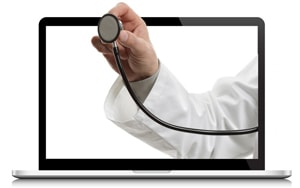Virtual Consultations Available! Start Your Journey Today.
Schedule A ConsultationDo not eat or drink anything starting 2 hours before your scheduled surgery time.
You can shower as normal the night before or morning of surgery.
Do not apply any lotions, moisturizers, or deodorant on your body.
Do not bring jewelry or valuables with you to surgery.
Wear comfortable, loose-fitting clothing. If possible, wear a button up shirt or hoodie with a zipper. Comfortable shoes and warm socks are recommended.
Remove contact lenses, dentures and nipple rings.
Someone must drive you to and from surgery. If you don’t have anyone available, call your surgeon’s office so the staff can assist with making alternate arrangements.
Take all medications as instructed by your surgeon. Often times, there are medications to take before arrival. Do not take any medications you been advised to stop taking.
Arrive 1 hour prior to your scheduled surgery time unless otherwise instructed.
If you still have a balance due for your surgery, please bring payment with you.
Nausea: Although rare with local anesthesia, some patients may experience nausea after surgery. If you have been prescribed Zofran, take it immediately. Pain medications and antibiotics can often cause nausea as well. Be sure to take these medications with food. If your nausea persists, you may consider stopping the pain medication.
Medication: Take all medications as instructed
Activity : Rest after surgery and avoid activity. At some point during the day or evening you will want to get up and walk around for 15 minutes every hour to promote proper blood circulation.
Hydration: Keep Gatorade available. Make sure you drink a lot of fluids post-operatively.
Sleep: Rest and sleep at a 45 degree angle on your back for at least the first 3 days after surgery. Continue to do so until you feel comfortable sleeping the way you normally do.
Bandages/Garment: You will be sent home with bandages and a binder wrapped around your chest. Adjust garment/bandage every 2 hours or as needed. This may mean undoing and repositioning the elastic bandage. You should have gentle compression. If you cannot put your finger in between the garment and your body, it means it is too tight.
Shower: Don’t shower for the first 24 hrs. following surgery.
Ice : You may apply ice packs or gel packs to the breast area for first 2 days. Do not apply directly to skin.
Driving: Do not drive for the first three days, while on pain medications, or if you feel impaired in any way.
Blood thinners: Do not use aspirin-containing products for at least one week. You may take Tylenol or pain medication as prescribed.
Smoking: Do not smoke for at least 1 week after surgery.
If you develop a fever, or feel there is something unusually wrong, please contact your surgeon’s office right away.
Dr. Joseph Cruise is a board-certified plastic surgeon with over 20 years of experience. Regarded as one of the top gynecomastia surgeons in the world, Dr. Cruise has gynecomastia-specific content that can be found at lagynecomastia.org. Dr. Cruise has dedicated his career to cosmetic surgery but has also had extensive training in General Surgery, Hand Surgery, and Microvascular Surgery. Dr. Joseph Cruise is also a member of the Rhinoplasty Society as well as the American Society of Plastic Surgeons.

Use our Fast Track program to receive a rapid assessment with a recommended treatment plan and estimated surgical quote.
Get Started